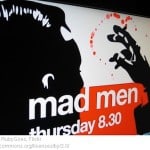While there are a few good client/agency relationships in building materials, I find the majority of them are not very strong. The result is that the client doesn’t get the results they should.
How to tell if it’s time to fire your ad agency?
- They don’t understand your business. Your agency needs to know how your product gets to market, who are the key decision makers and what their motivation is. They don’t need to know as much as you do about the technical details of your product.
They do need to know why someone would buy your product and what the barriers to the sale are. They literally should be able to make a basic sales call on a prospect. That means not only knowing whether the prospect is an architect, a builder or a contractor; it also means knowing how those people succeed in business.
Ask yourself: When is the last time someone from the agency rode with the sales team or made a customer call?
- Purchase motivations are more complicated and nuanced than, “The customer will make more money selling your product.” I hear too many agencies fall back on this lame thought. You may not agree with your agency, but they should have a well thought out strategy of who to target and what the message should be.
Agencies for large packaged goods companies do this for everything and there is no reason that a building materials agency shouldn’t also do their due diligence on a proportional scale.
Ask yourself: Can your agency explain how your product solves a customer problem?
- They don’t ask why. If you give your agency, an assignment and they don’t ask you why, you should fire them on the spot. Too many agencies only see dollar signs when you give them an assignment. You need an agency that first understands your objective and why you think this assignment will achieve it. On a regular basis, they should disagree with you and bring you a better idea. And that better idea shouldn’t always cost more.
Ask yourself: Are you arguing over strategy or tactics? Does the agency not understand or are you not listening?
- They think increased spending is the only way to succeed. Even if you have lots of money, your agency should strive to out think rather than simply outspend the competition. If they are constantly lamenting that if you only had a larger budget that is a warning sign. If your marketing depends on paid media advertising budget then a larger budget will probably help. Successful building materials marketing and sales growth seldom depends on media advertising. It more frequently depends on smarter thinking and strategies than simple creative execution.
Ask yourself: Is the first question asked “what’s your budget for this project? Do they ever discuss trade-offs around existing projects if they take this project on?
- You don’t have access to the leaders. You hired the agency based on meeting their best people and seeing their best work. Building materials companies are usually not sexy clients so it is easy for the agency leadership to focus their attention on their more sexy clients. You deserved better than this. At a minimum, the agency leaders should meet with you on an annual basis and have an in-depth discussion. They should show up at the meeting with some recommendations that show they have done their homework. If all you get is an expensive meal, this is probably the wrong agency.
Ask yourself: What’s the role of the senior leaders at the agency on your business? Is it relationship-building or business building?
- Constant turn over of your team. Building material clients are frequently used as a training ground for junior people. If they do an outstanding job, they will probably get promoted off of your account. It is rare that someone gets promoted on to a building materials client.
If you experience a high level of turn over, is it your job to train the new team and to pay for their services while they are being trained? If the agency isn’t willing to recognize this issue and make an investment themselves, you may be wise to move on.
Ask yourself: How often has the team changes in the past year? Not just the account exec, but the art or copy team?
- What is their measure of success? Are they more focused on winning awards or on achieving your objectives? Do they ask you, ‘Isn’t this really creative or cool?” When was the last time they asked you, “What sales results did you achieve from our last program?” Many agencies either don’t think sales results are part of their job or they are afraid to ask. You should have a partner in the growth of your sales.
Ask yourself: What’s the ROI of your marketing spend? If the agency waffles, then you have some insight on how they see performance.”
- A focus on creativity over strategy. There are many agencies whose creative ego gets in the way of good business practices. They view that they can solve any problem with shear creativity. Unfortunately for them, creativity is now a commodity. If you already know what you need, you may be better served and save money by using specialist firms such as graphic design, web and social media firms than a full-service agency. Creativity is not in short supply, strategic thinking is what’s hard to find.
Ask yourself: If you were your customer, does that ad help them understand your product better?
- You feel taken for granted. After the initial honeymoon, many agency relationships settle down into a boring type of status quo. The excitement is gone for both the agency and the client. The agency quickly builds a list of what the client won’t allow, so they stop pushing back or surprising you with really fresh thinking. If you are always getting back what you are expecting, that’s not why you hire an agency.
Ask yourself: Are you thinking the agency is really understanding your business because they doing exactly what they are told?
- You can’t imagine the agency leaving you. Ideally you should give up your need to be in control and work with agencies that may leave you if the relationship isn’t working. If you have an agency who, you feel, will stay with you no matter how you treat them or use them, an agency that literally is just in it for the money. You don’t have an agency, you have an art studio.
Ask yourself: How important is your business to your agency? Are you a top 10 account for billing? If you don’t know, find out.
There are a lot of agencies who do a good job of servicing their clients. In my experience, there are a lot more who make a number of these mistakes. It’s like any good relationship, you have to work at it and not just take things for granted.
What if the problem is you?
I also see a lot of good agencies who can’t do a good job because their client gets in the way. Here are some ways this happens.
Here’s how you may be the problem
- Thinking that you are the creative person. Many marketing people feel that they understand the selling situation so well that they have to develop the ideas. They then expect the agency to agree with their thinking and simply execute their idea. It’s like they feel threatened by the agency developing solutions (or worse, don’t think the agency is close enough to the business to have an idea). However you approach it, you need to clearly define roles and if you just need someone to execute your ideas, you probably don’t need a full-service agency.
Ask yourself: Are you give your agency assignments or problems to solve? If it’s just assignments, then you don’t need an agency.
- You hold back information. In order for an agency to do a good job, they need to know as much as you do about an issue. If you’re not willing to open up, you are wasting your money with an agency or maybe you don’t really trust them.
Ask yourself: Do you consider your agency a strategic partner or someone who can get the job done?
- You are cheap. Good work costs money. Many clients either won’t spend what it takes or waste time nickel and diming everything. You need to work with an agency whose costs are in alignment with your budgets.
If you are nickel and diming things and thinking you’re saving money, trust me, you are not. Agencies are better at playing games than you are. If you try to negotiate invoices, they just add more costs to invoices. The best agencies won’t work with you anyway if you act this way.
Ask yourself: From a full-service ad agency’s perspective, are you hard to business with?
Agency client relationships are the best when both groups are open and honest about the issues the business is facing and what it will take to overcome them. When these relationships are true partnerships, both companies will ultimately succeed and grow.
If you think it may be time for a change, here is a directory of agencies with building materials experience that you may want to consider.
Greg Bonsib gives his perspective from the client side. Greg has extensive experience in working with agencies in his marketing leadership positions at ODL, Owens Corning, Rubbermaid, Sentry Safe and Zenith Products. Greg also publishes an industry-leading blog on Channel Marketing.
Subscribe To My Newsletter
If you like what I say, sign up for my newsletter here and get my weekly newsletter every Sunday night.
Thanks for the following comments. I’d like to hear your feedback and suggestions on how to sell architects.
“Another great read. Thanks for the lessons Mark.”
Jack Yurich
Vice President of Sales
The Callard Company









